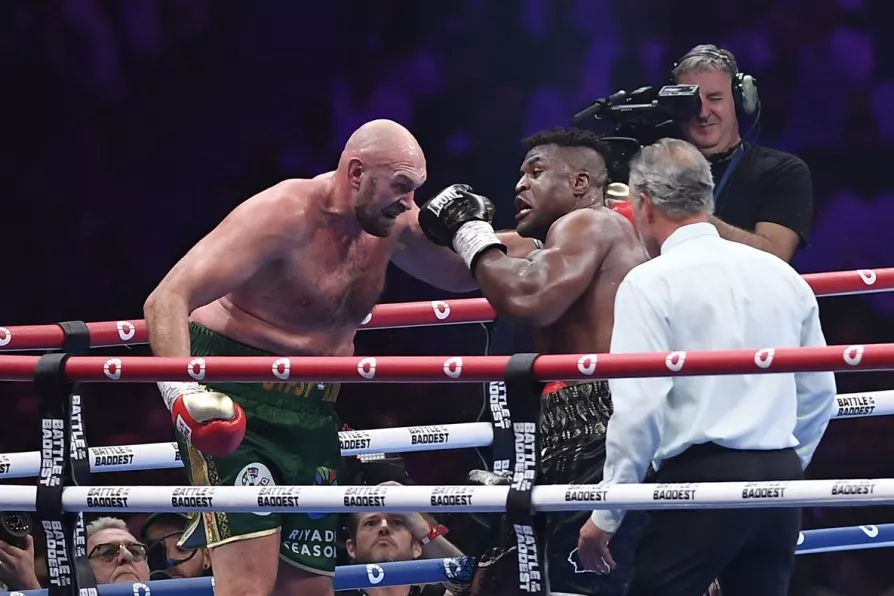
 Tyson Fury, the WBC and lineal heavyweight champion, fights with former UFC heavyweight champion Francis Ngannou, during their boxing match to mark the start of Riyadh Season at Kingdom Arena, in Riyadh, Saudi Arabia, October 29, 2023
Tyson Fury, the WBC and lineal heavyweight champion, fights with former UFC heavyweight champion Francis Ngannou, during their boxing match to mark the start of Riyadh Season at Kingdom Arena, in Riyadh, Saudi Arabia, October 29, 2023
WHILE it may be impossible to fathom the thoughts racing through the mind of WBC heavyweight champ Tyson Fury as he hit the canvas at the end of a counter left hook from Francis Ngannou in Riyadh, Saudi Arabia, last weekend, for those watching it was akin to witnessing an earthquake in slow motion.
For prior to that moment in the third round, the very idea that a man making his debut fighting under Queensberry Rules could even come close to laying a glove on a fighter widely considered to rank among the greatest heavyweights of all time seemed utterly perverse.
Fury left the ring after sneaking a ten-round split decision like a thief escaping through a living room window, such was the humiliation attached to his performance. The rolls of fat protruding over his trunks were evidence of a man who’d arrived in Saudi Arabia the week before on a jolly rather with the intention to fight, more interested in revelling in the five-star treatment lavished on him by his Saudi hosts than throwing down.














